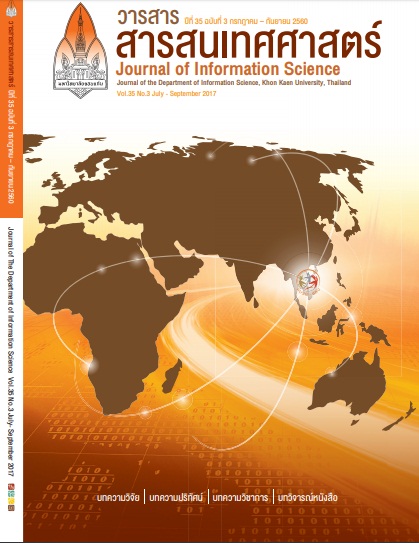Factors Influencing Citation Counts inThai Nursing Research Articles Published on Scopus Database : using Zero-Inflate Negative Binomial Regression
Keywords:
Citation Analysis, Nursing Research Database, Bibliometric Data, International PublicationAbstract
This study aimed to examine the international publishing of Thai nursing research papers on Scopus Databases and publishing formats, analyze bibliometric
data and citation counts, and to determine factors influencing the number of cited research articles. The study sample included 471 Thai nursing research articles
published from 2009 to 2013. The data of the citation counts were collected for 3 years starting from the first day of the publications. The analysis of the collected
data included descriptive statistics, Spearman’s rank correlation for non-normality distribution data, and Zero-inflate negative binomial regression to conform with citation data counts which had excessive zero count data with over dispersion values. The research findings revealed that among 464 complete research articles, 43.3% were those on nutrition, and over 65% were published in American and British journals. Spearman’s Rho correlation analysis indicated that SJR of journal publications, H-Index of first authors, number of references, number of authors and international collaboration of institutions had statistically positive correlation with citation counts as r= 0.61, 0.44, 0.35, 0.27 and 0.25. The factors influencing the number of citation counts included SJR of journal publication ( = 0.76; 95% Cl = 0.65, 0.88), number of references ( = 0.02; 95%Cl = 0.01, 0.03) and H-Index of first authors ( = 0.01; 95%Cl = 0.001, 0.02). The implication of this research is that the quality level of published journals remains the key factor impacting the citation number. Besides, writing research papers that cover all elements in the subject field will facilitate article searching, and naming the first authors of the research works also influencs the social network between authors and readers.








